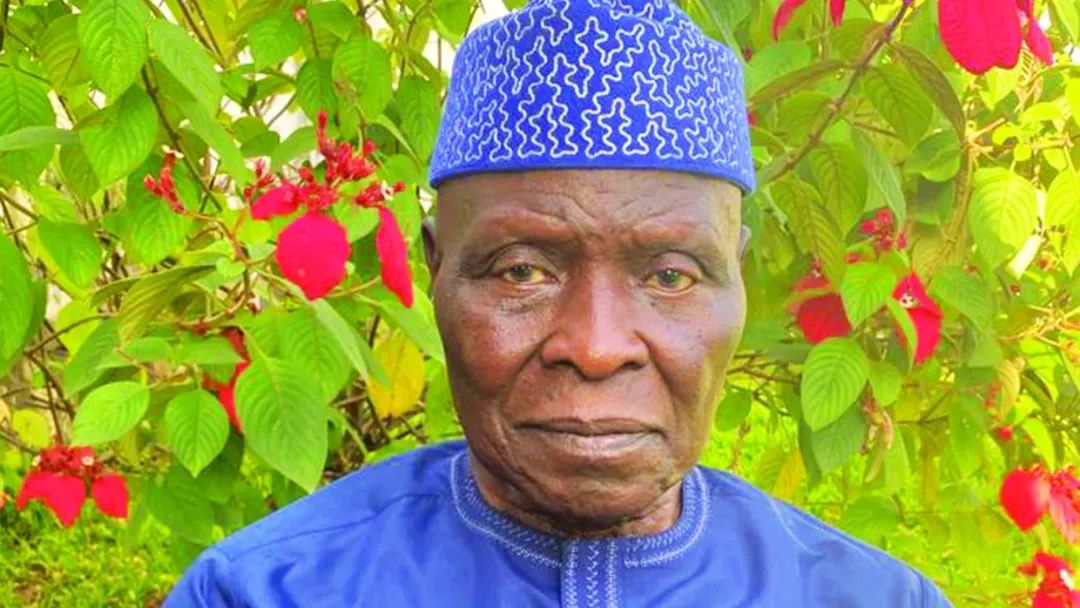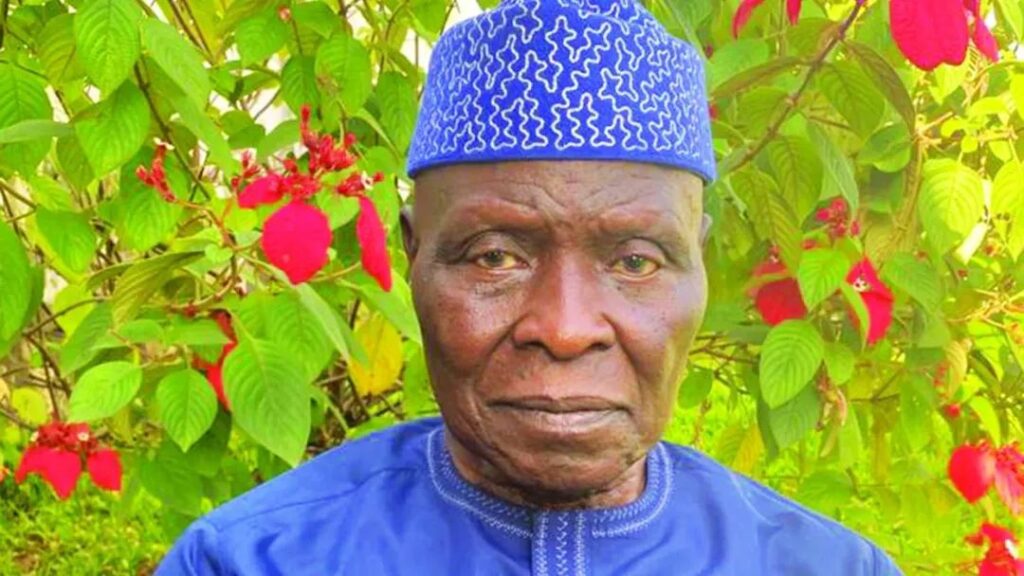News
The Brexit Nightmare ByReuben Abati
What has the United Kingdom just done to itself, its people and the future of its self? It is difficult to fully understand why a country in taking a decision about its future will decide on a false option that seems to negate long-term interests.
And this, just because a total of 17.4 million people out of over 61 million chose to vote against the United Kingdom’s continued membership of the EU. More than 50% of these pro-Brexit voters are actually between the age bracket: 50-70, thus an ageing class of voters has taken a decision to undermine the future of the younger generation.
Pro-EU Prime Minister David Cameron said he was “courageous and optimistic ” when in January 2014, he tried to justify the need for a referendum.
His words then: “ I think the overwhelming majority of the British people say they want to be in Europe but they want some changes to the relationship and they would like to be given a say. It is not something that we should be frightened of. It’s something we should embrace.” Cameron is now a study in political miscalculation and how over- confidence can make a political leader misread the people’s moods and expectations. He has been praised for his “courage” in quickly accepting the people’s verdict and for tendering his resignation, but I guess he won’t possibly be talking about courage. He must be full of regrets for presiding over the United Kingdom’s exit into a nightmare. Britain is better off remaining in the EU. But on June 23, 2016, the people of Great Britain spoke and their verdict has been accepted as the status quo, except a miracle happens and the current petition by the pro-EU protesters results in a second referendum. As things stand, the people have rejected continued membership of the European Union. The implication is that the majority of the people believe that the United Kingdom is better off on its own. What is quite clear is that this British exit (Brexit) is more about the rise of xenophobia, bigotry and isolationism. It is not new. Britain has always looked backward and in-out in the course of its membership of the EU, oscillating between its commitment to a greater Europe and the need to preserve British identity and sovereignty.
The British public mind has been driven in recent years by loud, perpetual carping about too much control from Brussels, and the
need to project Britain first. The ultra nationalists nursed fears about their great country becoming a colony within a EU empire. They are uncomfortable with the apparent globalization of British demographics, turning Britain into a country of many racial colours, with the influx of so many immigrants who are empowered by EU laws to be free citizens of a united Europe. The call for a referendum on this matter has now given the Brexiteers, who jus want their country to be left alone by outsiders, the opportunity they have always wanted. PM Cameron apparently underestimated their resolve. The Leave EU activists campaigned more vigorously, and deployed every possible means including blackmail and sentiments. They had the vibrant support of many political leaders including former London Mayor Borns Johnson, Michael Gove, and fire-eating UKIP leader, Nigel Farage. In the event of an intense campaign that divided the country right down the middle, we witnessed the mainstreaming of xenophobia and bigotry. Labour MP Jo Cox who was murdered by an irate Eurosceptic for her pro-EU stance will be remembered as the symbol of how a straightforward, for or against, political debate turned into hate campaign and a national referendum became an act of terror. There are many lessons to be learnt from this instructively low moment in Britain. What has happened is actually a referendum on the British establishment and the EU. The EU faces a crisis requiring urgent introspection and reform of its processes, if it must continue to serve its purpose. Britain is not the first country to avoid membership of the EU but whereas countries like Switzerland and Norway can hold out on their own, Brexit comes at great cost to the British. At hand is the triumph of emotions over reason, and the triumph of right wing populism. In many countries of Europe and even at the moment in the United States, the ultra-conservative political bloc seems to be in the ascendancy. Questions are being asked about regional integration and globalization. The basis for this is largely the manner in which regional groupings such as the EU disappoint the people. This is made worse by the failure of the leadership elite and sitting governments. When people are not happy with their governments or their circumstances,
they are ready to make any choice that looks like an alternative. Opposition and anti-establishment politicians understand this game too well.
All they need to do is to demonize the establishment, tear the government of the day into pieces, call names and tell the people that the time has come for change. Those who claim that they best know how to save a nation, armed with populist rhetoric in an election time, and have the best support of the people, in the long run stand a better chance of winning. Democracy in that fashion is a play-field of emotions, not facts. It is the same scenario that made Bernie Sanders so popular in the recent Presidential nomination process in the United States, and also led to the emergence of Donald Trump as the presumptive Republican Presidential candidate. Political leaders who don’t want sad outcomes only have to provide good leadership and meet the people’s
expectations. It is also clear that democracy may not produce rational outcomes in so far as it awards triumph on the basis of percentages: in Brexit, the difference is just 4%, 58-42, but the rule of the game is that majority carries the day, and as in most cases, the winner takes it all. But should the economic and political destiny of a people be determined in such formulaic manner?
Brexit has left the United Kingdom in a more divided shape that it was before the referendum. The entire country is in turmoil.
The taste of change doesn’t quite seem so sweet anymore, less than 72 hours after the vote. Young Britons may no longer be able to
move freely across Europe and the experts have predicted rising costs and expectations and greater economic hardship. If Brexit
stands, more than half of the population will be thrown into a winter of discontent, wondering why just about 1.3 million voters
(17.4 million (for), 16.1million (against) should have been allowed to mislead a country. Many Britons will no longer be able to find jobs so easily across Europe. Hyperdemocracy has resulted in British discombobulation. But that is democracy: it includes the people’s right to make mistakes, that is – the right of the simple majority to make mistakes at the expense of the minority, who may have lost the vote due to poor turn out or other matters of logistics. Leadership counts. The truth is that the leadership elite in Britain has also not always being too clear about where Britain should stand in relation to the rest of Europe. Even the pro-EU political leaders do not really object to Britain holding on to its national currency, the Pound, as opposed to the Euro, and Britain opting out of the idea of being a Schengen border. Britain also did not join the European Economic Community until 1973, 16 years late. Two years later, there was an exit referendum similar to this one, won by the pro-Europe campaigners. Nothing forecloses the possibility of another referendum in the not too distant future to reverse the present decision. What has happened isperhaps all correctly British, in the final analysis: a nation yet to come to terms with certain odern realities, caught between nostalgia and the future. This is precisely what the copycat plebiscites should understand, particularly in Africa where some commentators have been saying that some African countries on account of Brexit may begin to raise question about the relevance of the African Union. The AU is modeled after the EU and it receives substantial funding support from it, but it has not been as remotely relevant in addressing the people’s expectations. In my opinion, there is nothing to fear in terms of a copycat effect in Africa; most Africans are
indifferent about the AU anyway, they are not even aware of its existence. But as most development aid received by African countries come from the EU, this may be negatively affected with the exit of a major country like Britain, and a post- EU Britain may also be compelled to adjust its trade relations, immigration rules, and development support for countries in Africa. This, I think, is all there is to it at this end. Closer home, the more strident call is for a referendum on the Nigerian union. In the last few days, I have for example, seen a strange Nigerian invention called “Biafrexit”. This must be a joke, symbolically thrown up by those who must know that no Nigerian government will allow such a vote. The Brexit vote was not about disintegration, even if Scotland is now insisting on its independent right to be part of the EU; rather the vote was more about national and economic identity. Nigeria is
still at the level of debates: we can hold as many conferences as we like, adjust the Constitution at mutually agreed terms, but a
referendum that could lead to the dissolution of this country is not what we need, and it is certainly not the lesson from Brexit.
Foreign
Newly Married Liverpool Striker Diogo Jota Dies at 28

The football world is in deep mourning following the sudden passing of Diogo Jota, star striker for Liverpool FC and the Portuguese national team. He was just 28 years old.
Jota lost his life in a tragic road incident in Spain alongside his younger brother in the early hours of Thursday, July 3, 2025.
The devastating news comes less than two weeks after his wedding to his longtime partner, Rute Cardoso, which took place on June 22, 2025. The couple shared three children and had just begun a new chapter together.
Since joining Liverpool in 2020, Jota became a fan favorite for his sharp instincts, energy, and goal-scoring brilliance. He also proudly represented Portugal on the international stage, winning hearts with his commitment and character.
This is a heartbreaking loss for his family, friends, teammates, and the entire football community.
Rest in peace, Diogo Jota.
You will never walk alone. ❤️



News
Tinubu Appoints Grace Henry as First Female Chair of Nigerian Legion

President Bola Ahmed Tinubu has appointed Grace Henry as the new chairman of the National Council of the Nigerian Legion, marking a historic first as both the first woman and the first non-commissioned officer to lead the country’s foremost veterans’ organization.
The announcement was made on Thursday in Abuja via a statement by Abdul Lauya, Senior Special Assistant on Media and Digital Communications to the chairman.
According to the statement, Henry’s appointment was formalized through a letter signed by the Secretary to the Government of the Federation, George Akume, and takes effect from June 7.
Born on October 5, 1964, Henry brings with her over 25 years of military and administrative experience. She retired from the Nigerian Army in 2000 and most recently served as Director of Corporate Affairs at the Legion’s headquarters in Abuja. She is also the current National Coordinator for Female Military Veterans of Nigeria.
She succeeds retired Major General AbdulMalik Jibrin. Her appointment is widely seen as a reflection of the Federal Government’s commitment to promoting gender inclusion and equal representation within the military veterans’ community.
President Tinubu expressed confidence in her leadership and urged her to leverage her experience to reposition the Nigerian Legion, which serves as a vital support system for the nation’s ex-servicemen and women.
Her appointment is expected to usher in a new era of reforms and revitalization for the Legion amid growing calls for improved veteran welfare and institutional development.
The Nigerian Legion, a statutory body established to support the welfare of ex-servicemen and their dependents, plays a critical role in the rehabilitation, reintegration, and economic empowerment of military veterans. It also promotes national unity through remembrance events such as the Armed Forces Remembrance Day and collaborates with various agencies to uphold the dignity of retired military personnel.
In response to certain media reports describing her as “one of the most powerful non-commissioned ex-service personnel,” Henry distanced herself from the characterization.
“She wishes to make it clear that leadership is not about grandstanding or media posturing,” Lauya stated. “There is no such thing as being ‘most powerful’ under her leadership.”
Henry emphasized that the Legion remains a unified body, representing all veterans—commissioned and non-commissioned—without bias or division. She condemned any effort to create artificial hierarchies within the organization and called on the media to refrain from spreading unverified claims.
“She remains committed to the principles of unity, service, and integrity,” the statement added. “Ms. Grace Morenike Henry belongs to all and to none in particular. Her mission is to serve all Nigerian veterans equally and selflessly.”

News
Former Kwara Governor Cornelius Adebayo Dies at 84

Chief Cornelius Olatunji Adebayo, a former governor of Kwara State and one-time senator, has died at the age of 84.

Lagos Lately TV confirmed his passing through a close family associate, who disclosed that Adebayo died early Wednesday morning in Abuja.
Born on February 24, 1941, in Igbaja, Kwara State, Adebayo’s political journey began with his election as senator under the Unity Party of Nigeria (UPN) in 1979. He later served briefly as the state’s governor in 1983. Between 2003 and 2006, he held the position of Nigeria’s Minister of Communications.
A respected advocate for democracy, Adebayo was a leading voice in the National Democratic Coalition (NADECO), which pushed for the actualization of MKO Abiola’s June 12, 1993 presidential mandate. Notably, he declined an appointment to serve in General Sani Abacha’s military government in 1993, standing firm in his democratic convictions.
-

 News1 year ago
News1 year agoHardship: We Plan To Establish A National Commodity Board To Crash Food Prices – VP Shettima
-
News7 years ago
Blog Reader; Samson Osagiede Celebrates Fiancè Benedicta Daniels’s Birthday With Sweet Words
-
Home9 years ago
News Channel claims Donald Trump is an orphan from Pakistan,share alleged childhood photo
-
Home9 years ago
Another $175m Found in Patience Jonathan’s wife’s firm’s Bank Account
-
Home9 years ago
Oil Spillage: House of Reps Member Shares Photos of the Water her Constituents Drink .
-
Home9 years ago
Zara Buhari & Ahmed Indimi’s Wedding Access Card
-
News7 years ago
The Best Video You’ve Seen Today?
-

 Sport7 years ago
Sport7 years agoModric, Marta Wins 2018 FIFA Best Player Of The Year Awards ⚽️

